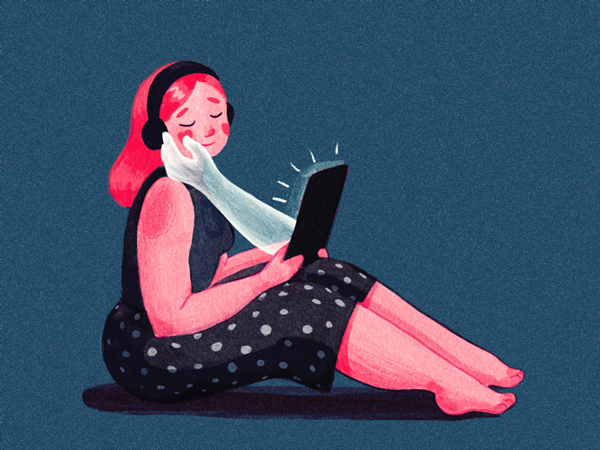
08 Jun Self-care: Looking After Yourself in the Digital Age
This year’s mental health awareness comes at a time when the world’s emotions are running high.
Now more than ever, people are prone to stress, anxiety and fear, as more than 450 million individuals suffer from mental health disorders globally. We see a vivid correlation between technology and mental health, specifically the harmful and mental strains that come with the excessive consumption of digital technology. Technology has also opened a new frontier in improving mental health issues. Afterall, like everything else in life, it’s all about balance.
With the world confined to their homes, it’s normal to feel stressed, anxious and frustrated. Being sheltered at home has also reverted to us relying on social media and technology for both work and staying connected with the outside world. Although this has its benefits, this can have its downsides as well.
- Young adults aged 18-25 had the highest prevalence of any mental illness at 22.1% compared to adults aged 26-49 at 21.1% and aged 50 and older at 14.5%.
- High usage of Facebook, Snapchat, and Instagram increases rather than decreases feelings of loneliness.
- Restricting social media by half-hour a day significantly lowers depression and anxiety symptoms.
The Damage
Unlike us, technology never sleeps. We spend hours a day online with our devices attached to the hip, when we could be doing more productive activities that can feed the mind. The term “FOMO”, fear of missing out, has never made more sense. We never want to miss out on life’s best moments; a post, text or event. We are engrossed in idealizing and comparing people’s digital lives with ours, which can exacerbate negative thoughts linked to anxiety and depression. Technology has also paved the way to the toxicity of cyberbullying, enabling users to be virtually online 24/7.
On another hand, the advancement of technology has also opened a new frontier for mental health improvements. Apps have allowed people to connect with wellbeing experts, tools for managing stress like meditation and fitness apps to keep the mind busy, and connect with people around the world that are also suffering from mental health issues. Advanced technical solutions and softwares like cloud backup eliminate stress and remove one less potential worry from our lives. When our data is safe, we are safe.
Here are our simple yet effective ways to achieving peace of mind:
- For those who constantly work online, it is important to implement the right data protection solutions to your devices to prevent mishaps from happening, like ransomware, online theft and data loss.
- Schedule “detox” days. Take a break off social media a couple days in the month and disconnect from the online world. This proves to lower stress and anxiety levels.
- Pay attention to what you do and how you feel. Keep a mindful approach and always ask yourself, “why?” “how does this make me feel?” Being aware of your feelings to create a change in your everyday habits.
- Try reducing screen time before bed. Blue light emitted by devices can disrupt sleep patterns and hours.
For most of us, giving up technology is not realistic, nor necessary. Having balance is about enjoying the benefits while minimizing the harm. We find ourselves resorting to social media for a sense of stability or to pass time. It is vital however, to keep your mental health in check and implement a “self-management” mindset. While we dedicate the month of May to mental health awareness, we encourage you to continuously find balance in your life as well as your digital one.
Find out more about our products and pricing by visiting www.polarbackup.com